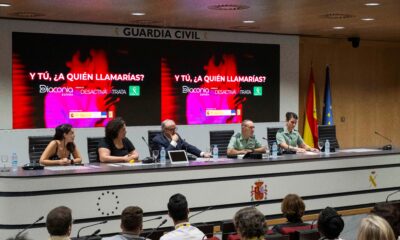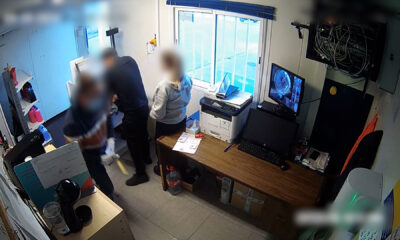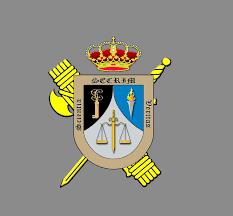

News
EU agrees to strengthen the cultural and creative dimension of the video game sector in Europe
The Spanish Presidency of the Council of the European Union has also raised in the session, held at the European Parliament in Brussels, the debate on improving the working conditions of artists and professionals in the cultural field.
The Minister of Culture, Ernest Urtasun, chaired the Council of Culture Ministers of the European Union in Brussels, in which conclusions on strengthening the cultural and creative dimension of the European video game sector were approved for the first time, one of the priorities of the cultural program of the Spanish Presidency of the Council of the EU, which has had as its milestone the unanimous approval of the ‘Cáceres Declaration’.
The document, the result of the debate and contributions of all the delegations, the Commission and the Council Secretariat, is, as Urtasun recalled, “the result of a fluid dialogue between the delegations and its objective is to focus on the video game sector, as a cultural sector of the future, which facilitates the conversation between art and technology and which generates intense synergies with other creative and cultural sectors”.
For this reason, it has raised “the possibility of proposing a European strategy on video games, which serves to promote and support its creative and cultural dimension, stimulate the competitiveness and independence of European companies in this sector and encourage cross-border collaboration.”
The conclusions have as a starting point, shared by all Member States, the consideration of the video game as an increasingly present element in society and the cultural product most consumed by young people. To which is added the potential they have to “transmit values of European creation, heritage and history, as well as promote positive cultural and social changes, acquire skills, fight against all types of discrimination and promote cultural and linguistic diversity”, as the minister has pointed out.
The European video game sector offers, according to the text, interesting tangible benefits from the point of view of job creation for our society (especially among youth), contribution to GDP, creativity, research and development. and innovation. For this reason, talent and training occupy a relevant position. Furthermore, it takes into account that this is an industry in which the European fabric is made up mainly of small and medium-sized companies, as well as start-ups, so it pays special attention to the protection of the value chain, in which intellectual property rights and assets constitute the basis for development and growth, and the essential element that serves for fair remuneration of all agents.
Likewise, it highlights the role of women, both from the point of view of employment and content. In fact, the conclusions highlight the need to work towards equality and reduce the gender gap in an area in which women only represent 22% of people working in the sector at European level, but they represent 47% of people who play. In the opinion of the minister, “we must overcome the reductionist stereotypes that are collected and take advantage of the potential that video games offer, precisely, to promote values such as gender equality, pluralism and diversity, while guaranteeing artistic and creative freedom”.
The user’s perspective also occupies a relevant place. As Urtasun has stated, “together with the industry, we must work to guarantee a safe digital environment, in which digital literacy, responsible gaming and the avoidance of harmful behaviour are encouraged.” He also considers the relevance of the situation of children and young people, as they are the most vulnerable group. “Video games should serve to improve their abilities, but guarantee their well-being. Therefore, we must promote information campaigns and instruments for the protection of minors,” he stated.
New debate on cultural professionals
During the session, the political debate ‘Improving the working conditions of artists and other people who practice a profession in the cultural field’, proposed by the Spanish Presidency as another of its main lines of work in cultural matters, also took place. According to Urtasun, “cultural workers must be able to live with dignity from their work and, to do so, it is necessary to adapt the laws to the particularities of their activity, to cultural exceptionality.” In this way, “developing policies that allow professionals in the creative and cultural industries to make a living from their work is an obligation of public institutions.”
Therefore, in the words of the minister, “promoting them at the European level, in such a way that it contributes to greater mobility and forging a more solid European culture, is a necessity.” The purpose of the debate is to obtain a general context of the working conditions of artists in all Member States. “I am convinced that it will constitute a new step for a future European Union framework that provides minimum guidelines on this issue,” he said.
Along these lines, Urtasun has taken stock of the initiatives carried out by the European institutions, within the framework of the Work Plan for Culture 2019-2022, which has already resulted in a report, published last July, that addresses the situation of cultural workers from a European perspective and the main challenges they face, proposing proposals to be made. And he has advanced that the 2023-2026 Work Plan “takes a step forward and includes, as a priority action, ensuring fair working conditions for all cultural workers.”
Likewise, he mentioned that the European Parliament has approved this week a legislative report of its own initiative in which it recognizes the need to improve the living and working conditions of creators, artists or performers at European level, in which it makes a call for Member States to agree to increase the priority of this issue and include more ambitious actions. Furthermore, it has urged the Commission to study the possibility of proposing legislative initiatives at European level that serve to improve the status of artists, complementing those that each of the Member States are working on, as in the case of Spain, the Statute of the Artist, whose development is promoted by the Ministry of Culture.
The conclusions on video games and the proposal for debate on the Statute of the Artist at the European level represent a new milestone for the Spanish Presidency of the EU Council after the approval of the ‘Cáceres Declaration’ at the Informal Meeting of Ministers of Culture held on last September in the Extremaduran city. Urtasun has reiterated to the 27 Member States the importance of, for the first time, uniting to “ensure that culture, the basis of our European identity, is considered, from now on, an essential public good and a global public good.” “.
European Freedom of the Media Regulation
Another of the highlighted issues of the day was the balance of the situation regarding the European Regulation on Freedom of the Media (EMLA). As Urtasun explained, “from the Spanish Presidency we will do everything in our power to reach a balanced transactional solution with the European Parliament (…), so that it can be applied efficiently, that responds to the needs of media operators. communication and that guarantees the proper functioning of the European market for media services and is ambitious from the point of view of strengthening the protection of journalists”.
And he has advanced that, “if the agreement were reached, following the institutional channel, the text would be approved at the last meeting of the Committee of Permanent Representatives to the EU, on December 20, and would be ready for the final steps of its processing”.
In this sense, he concluded by highlighting “that for the first time the European Union has a regulation on the freedom and pluralism of the media, a fundamental element to guarantee the health of our democracies and, therefore, compliance of the fundamental rights of all Europeans”.
Other issues have also been addressed on the agenda, such as the assessment of the implementation of the 2021 Council Conclusions on the recovery, resilience and sustainability of the cultural and creative sectors; the Ljubljana Reading Manifesto; the selection as European Capital of Culture 2028 of České Budějovice; the presentation of the programs for the 2024 European Capitals of Culture of Bad Ischl Salzkammergut (Austria), Tartu (Estonia) and Bodø (Norway); the Culture Pass and KulturPass; or the work program of the incoming Presidency.
EU support for Ukraine
As a preamble to the meeting, the Minister of Culture and Information Policy of Ukraine, Rostyslav Karandieiev, made a speech with a video message to learn first-hand about the situation of Culture in Ukraine. Urtasun has reaffirmed the European Union’s support for Ukraine’s cultural and creative sectors, as reflected in the 2023-2026 Work Plan.
Furthermore, he recalled that, since the beginning of the Russian invasion, the European Union has allocated more than 10 million euros to Ukraine to support its cultural heritage. And he insisted that, as soon as conditions on the ground allow, the EU and its Member States will help Ukraine to rebuild and repair destroyed or damaged cultural heritage and to reopen and strengthen the cultural and creative sectors.
The post EU agrees to strengthen the cultural and creative dimension of the video game sector in Europe appeared first on Spain Today – Breaking Spanish News, Sport, and Information.
-

 News2 weeks ago
News2 weeks agoOlive oil to join zero rate IVA from July
-

 Court News2 weeks ago
Court News2 weeks agoFour years in prison for hitting woman who didn´t want to have sex without a condom
-

 Health2 weeks ago
Health2 weeks agoImprove Your Quality of Life: Discover How Robotic Surgery for Prostate Cancer Works and Its Benefits
-

 News2 weeks ago
News2 weeks agoThe number of international air passengers grows by 13% and reaches 10 million in May




















